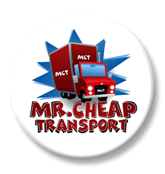SEO has leveled the marketing playing field for small businesses. Earlier, these businesses could not compete with their industry’s big names. But, now, with smart strategies, effective SEO, and hard work, a small business can give serious competition to the market leaders.
Even if you are a startup with a new website, you can come out on top, and outshine your competitors. Let’s know more about SEO.
What is SEO?
SEO is an acronym and stands for search engine optimization. It refers to the process of optimizing a website to draw organic (unpaid) traffic from the search engine results page (SERP). SEO involves implementing certain website design and content changes that make the site more appealing to a search engine.
A small business does this hoping that the search engine will present its website as a top SERP result. However, SEO can turn out to be a complex process when it comes to implementing the different elements that impact the site’s ranking. If you are wondering what to do, well, you can always contact digital marketing professionals.
Search engines aim to offer the best service for their users. So, they portray only the highest-quality and relevant results on their pages. For doing this, search engines scan or crawl different websites to understand them better. This lets them deliver more relevant results to users who are searching for specific keywords or topics.
Also, search engines scan websites to understand how easy they are to explore and read. Then, they reward user-friendly websites with higher SERP rankings. For the best results, contact premium SEO services for your small business. But for now, explore this arena in detail.
What Else Should You Know?
Businesses embrace SEO to ensure their website ranks higher in the search engines for relevant phrases and keywords. For example, if you have an article relating to building a birdhouse, you must try and optimize your content. This will make it be displayed as a top result for those who search for phrases like, “build a birdhouse”.
Truth be told, SEO significantly benefits small businesses. Through improved SEO, you can expand your visibility on the different search engines. This lets you reach and engage with more prospective customers. By developing highly-engaging and fine SEO-friendly content, you can raise your chances of drawing in more targeted organic traffic.
Thus, properly optimizing your site for search engines benefits you immensely. On this note, check out some important SEO aspects.
Basic SEO Terms Every Small Business Should Be Aware Of :
● Organic Search
When you type something in a search engine, like Google, and click on a non-sponsored link, it is called organic search. Ideally, on Google, you can see both paid search results (links labeled as ‘Sponsored’ or ‘Ad’) and organic search results (everything else).
A higher organic search rank improves your website’s chances of having more visitors. A small business can rope in new organic site traffic through quality SEO services.
● Google Answer Box
It is also known as featured snippets or rich results. This is a small box and includes an excerpt from a page available at the organic search results. A featured Snippet links to that page and shares basic information relating to a topic that Google considers relevant for the users.
Digital marketing professionals believe featured snippet ranking is excellent for boosting website traffic.
● HTML Tags
They tell browsers how to showcase your website. HTML tags split your page into various sections, and format them in different ways. The 3 critical types of tags are headers, meta descriptions, and title tags.
● Internal and External Links
Links send you to a different web page. The part of the click one clicks on is the anchor text. In case of internal links, it connects the different pages of your website and can help boost search engine rankings of new pages, or show how your various pages are connected. They also encourage visitors to explore the other parts of your site.
External links take visitors to pages outside of your site. From an SEO perspective, at times external linking gets you quality backlinks in return.
Every business must be aware of these basic SEO terms. Now, let us check out what influences your SEO success.
3 Critical SEO Factors
● Content Marketing
Content is crucial in both attracting the search engines and helping your brand connect with website visitors. You need to have quality and relevant content to rank higher on the search engine results page. With more engaging and effective content, your visitors will spend more time on your website, and may also be influenced to make a purchase.
With well-written and relevant content, you can strike a chord with your readers. But, what kinds of content should your website have? The answer is blogs, articles, social media content, videos, audio recordings, infographics, and other visual content, ebooks, and whitepapers, etc.
While creating your content, consider SEO keywords and phrases. Search engine users type in these relevant words and phrases while seeking answers to certain questions or relevant offerings. When you craft content around these phrases and keywords, you raise your chances of having a higher SERP rank for these keywords.
Another factor that impacts your search engine ranking is the freshness of your content. Here, freshness signifies how frequently you post new content to your website. But, this is not the only way to offer content fresh. Updating posts always help your cause. You may even rewrite older posts, or add new information and facts, to make them more effective.
● On-Page SEO
On-page SEO means optimizing your website pages to rank higher and draw more useful traffic in search engines. In short, it refers to every SEO aspect that happens on your site.
You have complete control over them and so, you can follow the best SEO practices to improve these aspects over time. Some of the common on-page SEO elements include the title tag, meta description, subheadings, internal links, and image name and ALT tags. These are integral to your on-page SEO success.
Also, avoid over-optimization while strategically positioning your SEO keywords and phrases on the pages. Otherwise, Google and other search engines will penalize your website page, if it tries to use keywords excessively throughout the content.
Additionally, ensure that every piece of content has only one or two keywords. This makes them specific and relevant. Tackling too many keywords simultaneously may negatively impact your SEO ranking as it is often seen for unfocused and irrelevant content.
Also, consider your website architecture. Go for a website design that makes it convenient for search engines to crawl your content and pages. In this respect, you must internally link your pages, build a sitemap and submit it to search engines. This improves your website’s crawlability and helps search engines better understand your content.
You should also be concerned about your site’s mobile-friendliness. Today, most users search for information and brands on their mobile gadgets. Ensure that these users can easily view, read, and explore your website from their devices. This betters your user experience and also, positively affects your SEO. Keep them in mind for reaping off the benefits of SEO for your small business.
● Off-Page SEO
Apart from content and the different on-page SEO factors, there are numerous off-page SEO elements too, that can severely impact your site’s ranking. Unlike the on-page aspects, you cannot completely control the off-page factors. However, there are ways to make them work out in your favor.
The first one is trust. This is a crucial factor in a website’s Google ranking. A great way to improve trust is by developing quality backlinks from authoritative websites. This lets Google determine whether your site is legitimate and visitors can trust it.
Another useful way is through backlinks. Build relationships with fans and influencers who develop quality content and will link your website in their content. But, be careful as spamming websites with your links is a common way to get your website banned from the search engines.
Social signals, such as shares and likes, are also a crucial off-page SEO factor. While improving your SEO, you would want quality shares from influencers. The better content you publish, the more you can get people to share your content with others. Thus, interesting and relevant content influences others to link to your content and also, share it on social media.
To sum it up, following the best SEO practices is a great way for small brands to build a sustainable online business. But, if you are not able to handle these tasks efficiently, remember, it is never too late to call a good Indian SEO Agency. Their expert services will help you grow your online business and go a long way.


 April 20, 2020
April 20, 2020





















